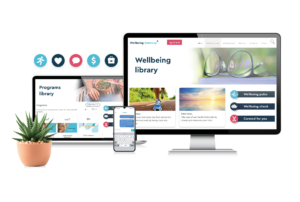Why psychological safety is important:
Psychological safety is not just important for individuals, it also has a number of benefits for organisations including:
1.Provides critical and essential consultation opportunity to meet workplace obligations
under the National Code of Practices.
2.Organisational growth through inspiring creativity and generating new ideas.
3.Risk mitigation through raising concerns.
4. Increased engagement and performance, and reduced turnover rates.
5.Helps create a more inclusive workplace environment.
Building psychological safety
Be inclusive
Everyone wants to feel seen and valued by their colleagues and managers. Some ways you can create a more inclusive environment include:
- Knowing your own work style and preferences and be aware of other’s, we all work differently but that is a strength that should be embraced.
- Sharing information often being in the know helps people feel included and trusted which can improve their psychological safety.
- Giving praise to your team –acknowledging and giving credit for contribution authentically and appropriately helps your workers feel valued.
- Getting to know your team, your people have lives outside of their jobs. Take time to get to know them on a more personal level and understand what they value and what drives them.
Leader’s need to build trust:
Trust is a major component of building and maintaining psychological safety –breaking one person’s trust can impact the psychological safety of an entire team. The trust equation is a great tool can help you to evaluate and improve your level of trustworthiness.
Credibility, reliability, and intimacy are all attributes that improve your trustworthiness however, regardless of how well you achieve in these areas, self-orientation can significantly reduce your overall trustworthiness.
How can you improve your level of trustworthiness?
Credibility: Aim to be a subject matter expert. Know your stuff and be honest when you don’t. Ask smart questions that are aimed at finding solutions, not proving your own knowledge.
Reliability: Reliability is built over time through repeated behaviour. Make and keep promises and deliver on them diligently.
Intimacy: Intimacy refers to how secure a person feels with you and is developed through small connections over time. Show vulnerability by sharing your weaknesses and fears and others will reciprocate.
Self-orientation: Self-orientation is the perception others hold of whether we genuinely care. When communicating with others, show genuine curiosity and ask open-ended questions. Keep re-engaging them in the conversation so it doesn’t become a monologue.
Seek feedback
Psychological safety aims to open up the communication channels within an organisation. As individuals, we can take a role in this by actively seeking feedback and being open to receiving authentic feedback from the people around us.
Something on your mind?
If you require counselling, coaching or support, our clinicians are available to help.
Call, chat or request an appointment online.
Looking for more resources?
Register for Wellbeing Gateway. Your personalised mental health and wellbeing companion.


